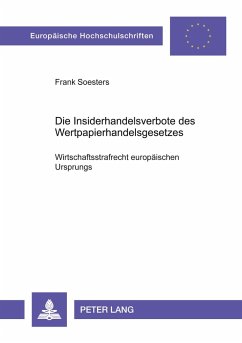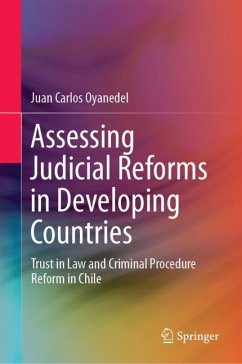
Insider Trading in Developing Jurisdictions
Achieving an effective regulatory regime

PAYBACK Punkte
89 °P sammeln!
The book examines the regulation of insider dealing in the developed jurisdictions, using three of the G7 countries as guides with the aim of knowing how they have regulated insider trading and what lessons can be learnt from their failures and achievements. It looks at regulatory regimes in the US, the UK and Japan in order to consider whether these regimes can be successfully transplanted to developing countries. In order to explore insider dealing in the developing world the book focuses on Nigeria, Africa's most populous nation and second largest economy. This book examines in theoretical ...
The book examines the regulation of insider dealing in the developed jurisdictions, using three of the G7 countries as guides with the aim of knowing how they have regulated insider trading and what lessons can be learnt from their failures and achievements. It looks at regulatory regimes in the US, the UK and Japan in order to consider whether these regimes can be successfully transplanted to developing countries. In order to explore insider dealing in the developing world the book focuses on Nigeria, Africa's most populous nation and second largest economy. This book examines in theoretical and empirical terms the law on insider trading away from the dogmatic approach of Western literature by presenting the subject from the prism of a developing jurisdiction in post-colonial Africa with a divergent cultural, historical, social, political and economic background. The author analyses what shape insider dealing takes in Nigeria, a predominantly illiterate society, and considers the groups involved. The books also explores how the concept of insider dealing regulation is understood amongst parties integral to its administration and enforcement such as lawyers, judges, stockbrokers, and ordinary investors. The legislation governing insider dealing regulation in Nigeria is critically examined to expose its strengths and weaknesses, and to see how foreign provisions and legislation have been incorporated. The book uses Nigerian experiences to consider its implications for other developing nations, arguing that regulatory regimes need to take into account the specific social, political, historical and economic factors of a particular locale rather than importing regulations wholesale from developed jurisdictions.














